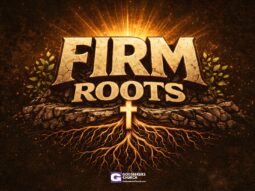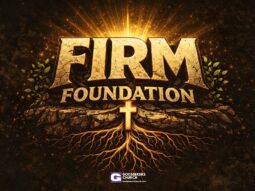And behold, the curtain of the temple was torn in two, from top to bottom. And the earth shook, and the rocks were split.
Matthew 27:51
Some barriers were never meant to stay forever. For centuries, the temple veil hung as a stark reminder that sin separated people from God's presence. This massive curtain, over sixty feet tall and as thick as a man's palm, blocked the way to the Holy of Holies where God's presence dwelt. Only the high priest could enter this sacred space, and only once a year on the Day of Atonement. The message was clear: access to God was restricted, limited, and perilous.
The moment Jesus died, something extraordinary happened. The temple veil was torn from top to bottom, not by human hands but by divine power. This wasn't a gentle parting but a violent rending that echoed the breaking of Jesus' body on the cross. The timing was no coincidence, occurring at the exact moment Jesus declared, "It is finished." What was finished was the old system of barriers between God and humanity. The veil's tearing announced a new reality where God's presence would no longer be confined to a single room.
This historic moment changed worship forever. In April of AD 30, at the very hour the Passover lambs were being slaughtered in the temple, the ultimate Lamb of God was dying on a cross. In 70 AD, when the Romans destroyed the temple, no replacement veil was ever hung again. Jewish historians record that after Jesus' death, strange phenomena occurred in the temple, including doors opening by themselves (Josephus, The Jewish War, Book VI, Chapter 5; Babylonian Talmud, Yoma 39b). These events signaled that something fundamental had shifted in humanity's relationship with God.
What was once hidden is now fully accessible. The Greek word for "torn" used in this passage is "schizō," indicating a complete and violent tear that cannot be mended. The same word is used to describe the heavens opening at Jesus' baptism. The temple veil featured embroidered cherubim, reminiscent of the angels who were said to have guarded Eden after humanity's fall. Now that those guardians were removed, the way to intimate fellowship with God was permanently opened.
The torn veil means you have unlimited access to God. No more need for human priests, animal sacrifices, or sacred buildings to mediate your relationship with the Divine. The writer of Hebrews refers to this new access as a "fresh and living way" that has been opened through Jesus' body. You can now approach God's throne with confidence, not fear. This is perhaps the most revolutionary aspect of Christian faith—direct, personal communion with the Creator of the universe.
Godseekers, this cosmic moment changes everything about how you relate to God. What was once a distant, fearful relationship has become an intimate connection through Christ. The veil's tearing wasn't just a historical event but a personal invitation. You no longer stand outside God's presence but are welcomed into the Holy of Holies. The ground beneath your feet is now holy ground. You have become the temple where God's Spirit dwells.
Prayer
Dear God, thank You for tearing the veil that once separated us. I stand amazed that I can approach You directly because of Jesus' sacrifice. Help me never take for granted this precious access to Your presence. Teach me to live as one who belongs in the Holy of Holies. In Jesus' name, Amen.
Personal Reflection
- How does knowing you have direct access to God change how you pray and worship?
- What "veils" might still be keeping you from experiencing God's presence fully?
Step of Faith
Today, I will take time to approach God with confidence, remembering that no barrier stands between us because of Jesus' finished work.




